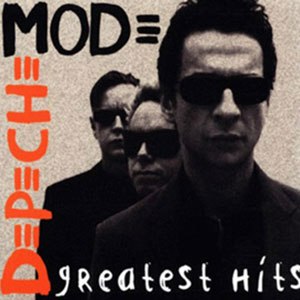
And by the time they delivered Some Great Reward, their fourth studio affair, one thing was clear: All murkiness in vision had dispelled. Keyboardist Alan Wilder had joined in 1982, returning them to a four-piece after Clarke’s unexpected departure. Depeche Mode just managed to iron out their kinks early. Most every artist has growing pains or falters at some point. The emblematic titles of Depeche Mode’s second and third albums, A Broken Frame and Construction Time Again, convey this period of rebuilding, while hinting at the grittier industrial influence that was beginning to blacken a sometimes too-sugary sound. They spent the next couple years experimenting to varying degrees of success. Abandoned by electronic mastermind Vince Clarke after Speak & Spell, Depeche Mode’s promising debut, the remaining trio of Andy Fletcher, Dave Gahan and Martin Gore scrambled to redraw their aesthetic. Those first unsteady years, it seems, only steeled their resolve. It was there they found their true footing. Once on the verge of vapid synthpop territory, Depeche Mode took a deliberate turn for the darker realm. Studio Albums: Speak & Spell (1981) | A Broken Frame (1982) | Construction Time Again (1983) | Some Great Reward (1984) | Black Celebration (1986) | Music for the Masses (1987) | Violator (1990) | Songs of Faith and Devotion (1993) | Ultra (1997) | Exciter (2001) | Playing the Angel (2005) | Sounds of the Universe (2009) | Delta Machine (2013) | Spirit (2017) | Readers’ Poll Results
#Depeche mode full discography series
We hope you enjoy this series and be sure to check here periodically for the latest installments.

In doing so, we hope to better understand the broader creative context within which our most beloved individual albums exist, while acknowledging the full breadth of their creators’ artistry, career arcs, and overall contributions to the ever-evolving musical landscape. Hence why we’ve decided to showcase what we believe to be the most dynamic discographies of all time in this recurring series. Here are all of Depeche Mode albums ranked.ĭon’t miss out on the Depeche Mode! Click below and enjoy the songs of these iconic group.Editor’s Note: From Albumism’s inception back in 2016, we’ve remained unabashedly and unequivocally passionate about our mission of celebrating the world's love affairs with albums past, present and future.īut while our devotion to the album as an art form has remained steadfast, as evidenced by our deepening repository of individual album tributes and reviews, we’ve admittedly seldom taken the opportunity to explicitly articulate our reverence for the virtues of artists’ complete album repertoires as a whole. They were nominated for induction into the Rock and Roll Hall of Fame in 20 and will be inducted as part of the Class of 2020. In December 2016, Billboard named Depeche Mode the 10th most successful dance club artist of all time. Depeche Mode also ranks number 98 on VH1’s “100 Greatest Artists of All Time”. Q included the band in the list of the “50 Bands That Changed the World!”. Gore took over as the main songwriter and, later in 1982, Alan Wilder replaced Clarke, establishing a lineup that continued for 13 years.ĭepeche Mode has had 54 songs in the UK Singles Chart and 17 top 10 albums in the UK chart they have sold more than 100 million records worldwide. Founding member Vince Clarke left after the release of the album they recorded A Broken Frame as a trio. The group as of now consists of a trio of Dave Gahan (lead vocals and co-songwriting), Martin Gore (keyboards, guitar, co-lead vocals, and main songwriting), and Andy Fletcher (keyboards).ĭepeche Mode released their debut album Speak & Spell in 1981, bringing the band onto the British new wave scene.

Depeche Mode (/dəˌpɛʃ-, diː-, dɪ-/) are an English electronic music band formed in Basildon, Essex in 1980.


 0 kommentar(er)
0 kommentar(er)
